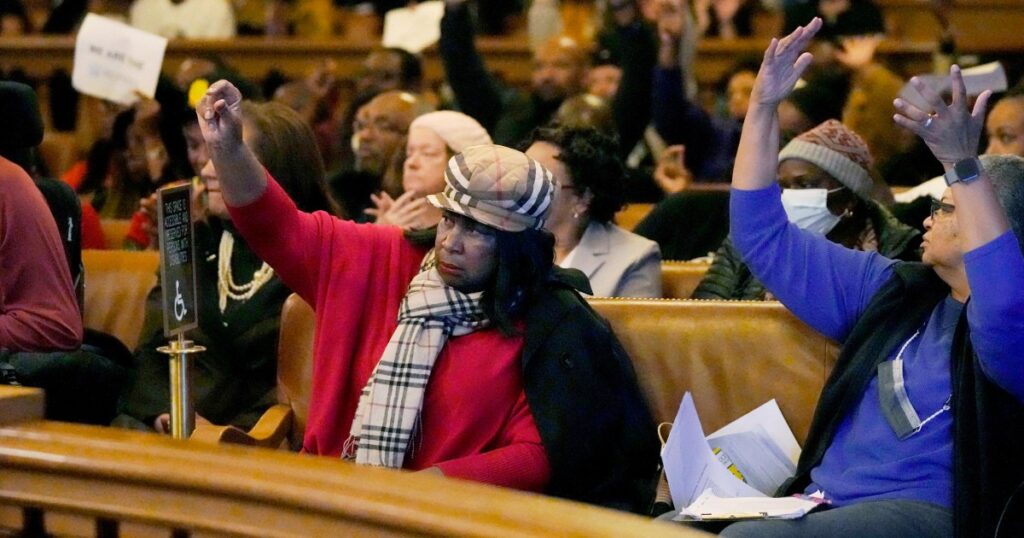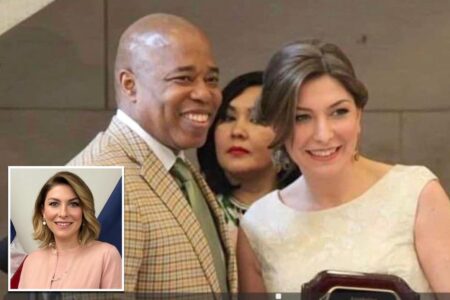The California Congressional Black Caucus is gearing up to launch a statewide campaign to educate its citizens on the critical nature of reparations for Black people — including cash payments — for the harms of slavery.
This comes on the heels of a University of California, Berkeley, poll released this week that shows most Californians oppose Black residents receiving any financial compensation as part of reparation recommendations from the state Assembly.
Among all of those who responded, 59% rejected the idea of cash payments to Black descendants of slavery in the state. Meanwhile, 76% of Black respondents were in favor of cash payments, and 66% of white voters were opposed to Black Californians receiving money. Democrats are more likely to support cash reparations than Republicans and those with no party affiliation, who strongly oppose.
Reginald Jones-Sawyer, a member of the reparations task force, said the results show a lack of knowledge around California’s deep involvement in slavery and other forms of racism that devastated Black families.
“Polls can be skewed because usually enough information isn’t given to the people, so that they don’t have a full understanding of what’s going on,” Jones-Sawyer said. “If each individual that they polled had read that 400-page document we did last year, which proved how California was complicit in chattel slavery, and read the 1,100-page document that we printed out this year, which talked about what reparations should be, there’s absolutely no way you would believe that [there] shouldn’t be some type of compensation.”
To inform the public, Jones-Sawyer said the California Black Caucus will begin a fund-raising campaign to hire a firm to disseminate “clear and concise and direct messaging,” about the report. “Obviously most people didn’t read the preliminary or final report by the task force. People now are trying to debunk those findings.”
Another hurdle will be educating members of the California Assembly, who are expected to sponsor legislation based on the task force’s 1,000-page report published in June.
For more from NBC BLK, sign up for our weekly newsletter.
The report covered myriad areas and recommended more than 100 statewide policies to address generations of discrimination and racial disparities. It did not, however, propose a dollar amount owed to people “who are able to demonstrate that they are the descendants of either an enslaved African American in the United States, or a free African American living in the United States prior to 1900.”
Jones-Sawyer gave an example that he hopes will ring true to Assembly members and the general public: “If you were to buy something, and then later on, you find out that it was stolen property, you wouldn’t keep that property. You wouldn’t take advantage of it. Well, the labor of African Americans was stolen for centuries. And now we’re asking for us to restore our dignity, restore what was taken from us. And any legal system would tell you that is the appropriate measure that you should take. And I think any American, once they are educated, would understand why it’s so important to have reparations.”
The lack of a dollar figure, however, is a sticking point for many Black people. Cathy Adams, president of the Oakland African American Chamber of Commerce, drove to Sacramento for the final public hearing at the end of June. She said she left profoundly moved.
“I listened to those families talk about how generational wealth was taken from them when they had land and property seized by white people for no good reason other than they wanted it — or didn’t want them to have it,” Adams said. “And it broke my heart. Education about what has happened is critical. I learned so much and it reinforced for me the importance of cash reparations in addition to the programs in the report.”
“But this is important: This isn’t about Black people looking for a check, a handout,” Adams added. “This is bigger than that. The harms of slavery are real. We are dealing with a number of disparities and inequities in the Black community that stem from what was denied or taken from us, our ancestors. We seem to fall at the end of the spectrum every time, in every way, and I think that anybody being a part of a poll saying we should not be financially compensated is wrong.”
Denise Branch, an anti-racism educator and racial equity consultant said the poll’s results are telling about an attitude toward Black people.
“The legacy of slavery is still impacting Black Americans financially,” Branch said. “While Black people made it possible for many non-Black communities to come to America and receive a handout, those same communities believe that America paying its incalculable debt owed to Black Americans would be a handout. White Americans believe they owe nothing because they believe themselves not to be their ancestors. But they are the beneficiaries of financial privileges handed over to them by their ancestors.”
Having a clearer understanding of the history will make a difference, Jones-Sawyer said. The California Black Caucus plans to work with the Legislature, which will not present its recommendations to Gov. Gavin Newsom until early 2024. Between now and then, the caucus will solicit insights and ideas from the public to help influence those voting on reparations for Black Californians.
Read the full article here









